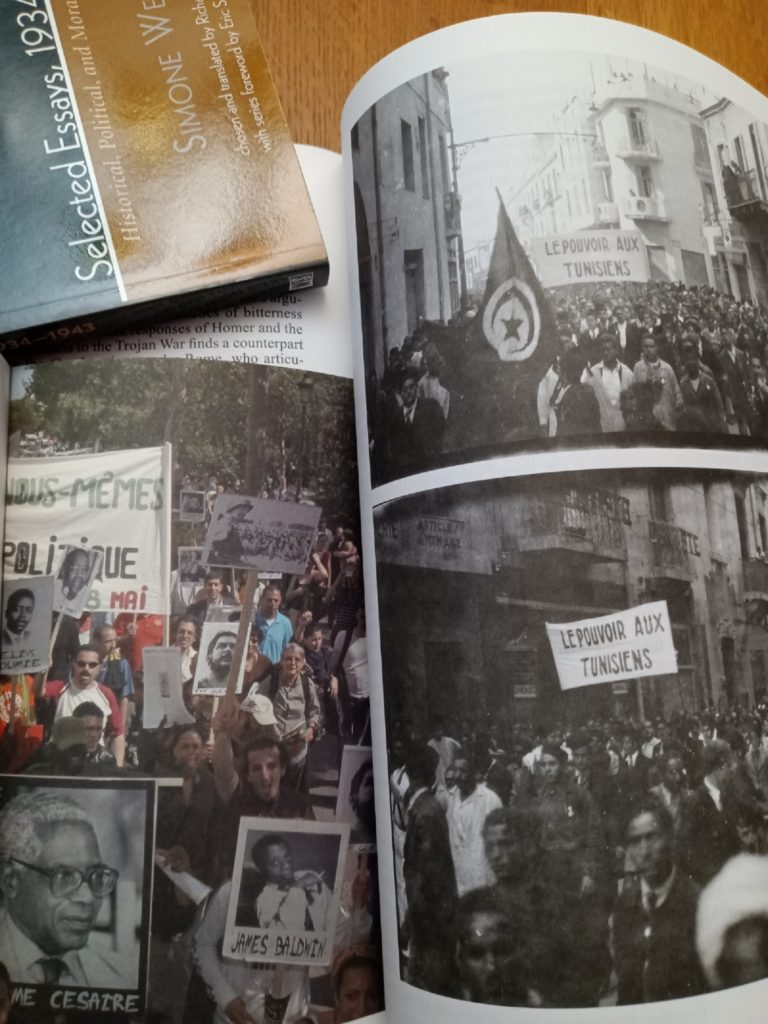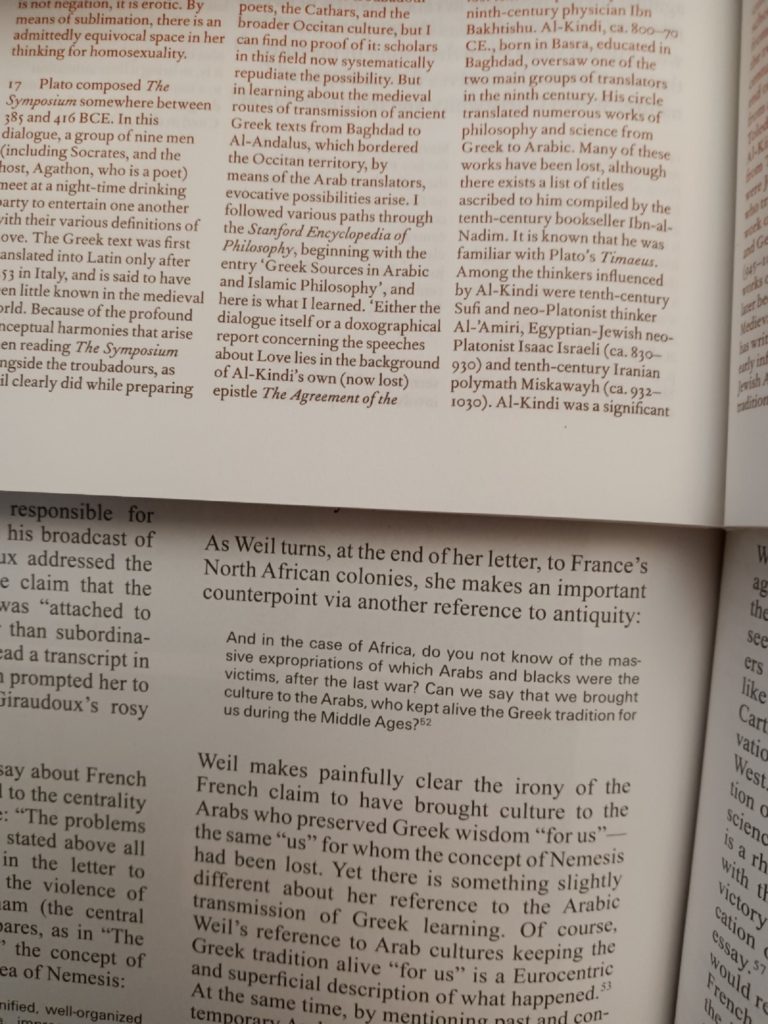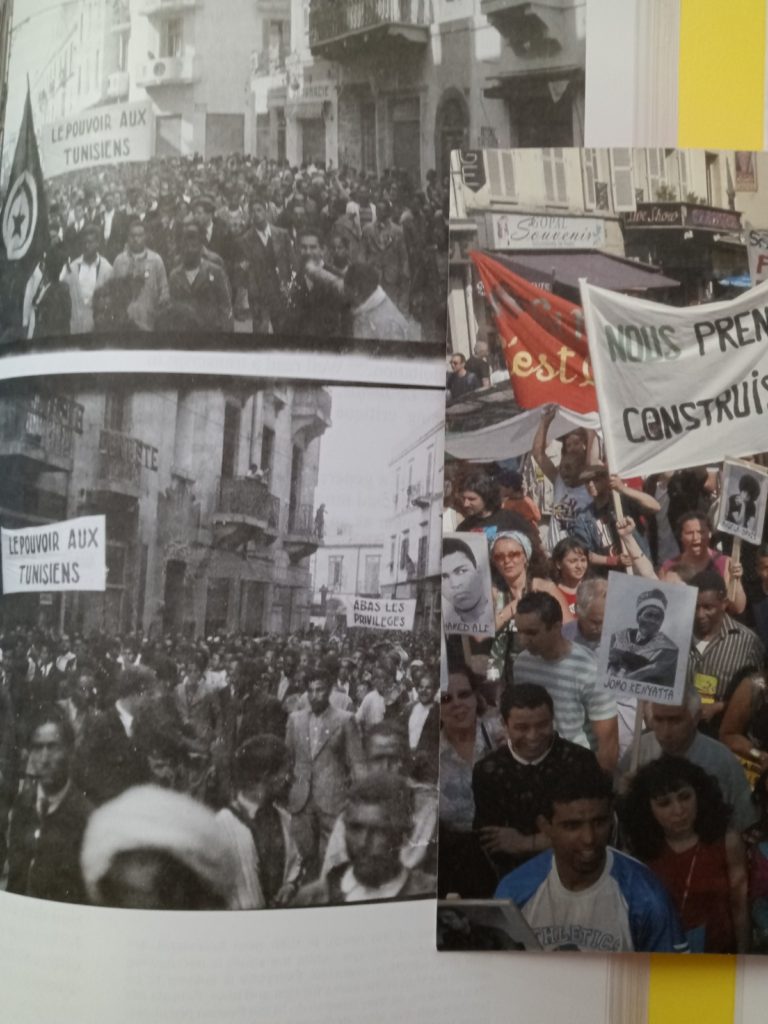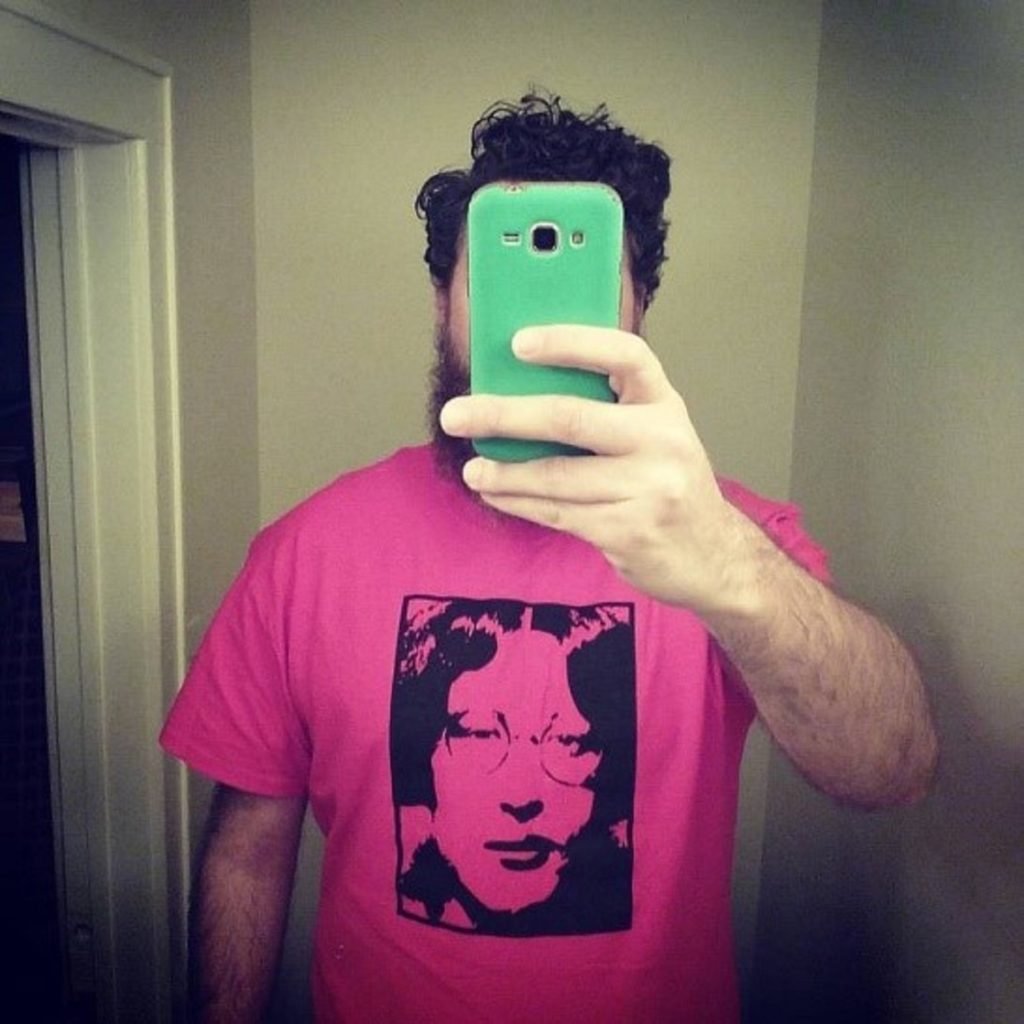If I admire, or even excuse, a brutal act committed two thousand years ago, it means that my thought, today, is lacking in the virtue of humanity.
– Simone Weil ‘The Great Beast: Some Reflections on the Origins of Hitlerism’, in Simone Weil: Selected Essays, 1934-1943 (Oxford University Press: Oxford, 1962) p. 133, quoted in Richard Fletcher ‘Blood is Flowing in Carthage: Simone Weil between Force and Colonialism’, South as a State of Mind (documenta 14 #4, Fall/Winter 2017), p. 198. Weil nevertheless presents a relevant and urgent call – to seize history from the totalising discourses and economies, and to ground resistance within a critical and rational reclamation of history, at the same time as we honour a history of spiritual experience that is not appropriative in relationship to colonised and oppressed peoples.
– Lisa Robertson ‘Anemones: A Simone Weil Project’ (If I Can’t Dance, I Don’t Want To Be Part of Your Revolution: Amsterdam, 2021) n. 9, p. 64 The proponents of Black Power speak: “Powerlessness breeds a race of beggars.” This is what we are and continue to be if we do not decide to stand up for ourselves, to think about power, and the strategy and means to attain it. We will be beggars so long as we do not break with our tutors, those who decide for us, without us, and against us. We will be beggars so long as we accept as universal the political divisions that cut up the white world and through which they conceive of the social conflicts and struggles that these divisions engender. We will be beggars so long as we remain prisoners of their philosophy, of their aesthetic, and of their art. We will be beggars so long as we do not call into question their version of History. Let’s accept rupture, discord, discordance. Let’s ruin the landscape and announce a new era. Let’s decide not to imitate them, to invent and draw from other sources. They say 1789. Let’s answer 1492! Let’s adopt the point of view of the Native Americans. What do they say? Contrary to the white Lefts, which explain the world through what they call the capitalist expansion of Europe toward the Americas, Native Americans say that it is not only an economic system that came crashing down on them, but a globalism characterized by capital, colonial domination, the modern state, and the ethical system which accompanies it, which is to say, a religion, a culture, and a language. In other words, in 1492, what was imposed on the Americas was less an economic system than a civilization: Modernity. They say: capitalist expansion therefore class struggle; we answer: colonial expansion therefore racial struggle. Words. There are their words. And there are our words. Our words have magical qualities. They de-hypnotize us and deliver to us venomous heritages. “Indigenous.” “White.” “Social race.” “White political field.” “Colonialism of power.” “Indigenous sovereignty.” “Decolonial majority.” We who are engaged in decolonizing struggle have never been so free as when these words came to find us. Ever since then, we have known who we are, what our position is, we know our weaknesses, we know our strengths. We are the Indigenous of the Republic . We rule over a political territory that we have conquered through infraction. Ever since then, we’ve provoked hatred, violence, fear, and respect. But never paternalism. Not a single person opens their mouth to talk to us about integration. And by intuition, one turns one’s tongue in one’s mouth seven times before speaking to us. Oh, there is still a certain crudeness ready to escape from an adventurous or ill-mannered mouth. But in our presence, prejudices and paternalism keep a low profile. When we come closer, they move away. To declare oneself indigenous is a victory against the indigénat . But it is first and foremost a victory against the self and against one’s own narcissism. Did Malcolm not reject the name “Little” in order to substitute it with that of “X,” proof of his uncompromising lucidity? Laziness – or comfort – make us prefer “Black is beautiful!” Why not? But why not do away with this step altogether? Others have done it before us, other have done it for us . All these flowers on the ground, let’s pick them. Of course black, Arab, Muslim, Roma is beautiful. This is a step of our awareness, but “black is – first and foremost – political.” As is “indigenous.” These are words that mean: “We no longer want to play your game. From now on, we will play our own .
– Houria Bouteldja, ‘We, Indigenous People’, from ‘Whites, Jews, and Us: Toward a Politics of Revolutionary Love’ (semiotext(e): South Pasadena, 2016), pp. 117-119. Like this: Like Loading...
Related







